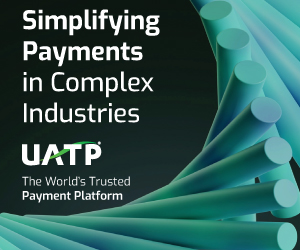This phrase – “Price, Service, Quality: Pick any two” – was one that I first heard when I opened my travel agency in New York City at 28 years old. We had an attorney who was twice my age and he sat me down in my office and told me that clients don’t like to get “no” for an answer; they will expect (and demand) the best price, highest services and quality. I immediately agreed with those requirements, and he advised me that in many ways they are mutually exclusive.
In a similar vein, I’m not sure if the diner really existed or if this was from a movie, but at the bottom of the first page of the menu was this disclaimer:
“If our service doesn’t live up to your expectations, lower your expectations.”
A Bit of History
Historically, this industry focused on cash, not on service. The growth of travel agencies was a result of the airlines recognizing that outsourcing distribution (providing paper tickets) and handling customer service issues (from booking to refunds) was more effective than the airlines providing the staffing and office space throughout the United States to take on those functions themselves. This was the birth of travel agency commissions and it lasted for a number of decades.
Our travel agency had an eclectic client base from Rock Bands (B52’s, Ramones, Eurythmics), to a cable company, financial services, and Lord & Taylor’s flagship store in Manhattan. They had very little in common but were all focused on the Service provided to them and the Quality of the travel arrangements (airline seat, upgrades, hotel room, amenities etc.). Price was transparent (we never marked up a transaction) and TMC fees did not exist.
The Birth of Transaction Fees
Once travel agencies lost their point-of-sale commissions in the US (and around the world over time), they needed to rebrand themselves from an “Agent of the Airlines” to a Travel Management Company (TMC). Along with that branding came a new model: Transaction Fees.
Transaction fees are not consistent in their calculation or even their definition. Some TMC’s consider each aspect of a PNR to be a transaction; our definition has always been “a rail or air ticket issued.” The market dynamics somehow changed the focus from “how much the travel agency will rebate” to “how much the TMC will charge us.” It’s unfortunate that the model also shifted corporate buyers’ focus (in many cases) to selecting the TMC based on fees, when the focus should have been on what I’ve called the “ROI” – Reducing the cost of travel, Optimizing supplier agreements, Improving the user experience.
Pick Any Two
The TMC pricing models are built on a combination of SWAG, bottom-up pricing, and raising the fee to the highest credible level. TMCs have to guess at their income, guess at the cost of servicing the client, and only the incumbent truly understands the net (or gross) income that a given client will yield for them. During the RFP process each TMC tries to compete on value provided, but they end up being compared on fees (that’s always been a mistake and never been our focus). In their attempt to cut corners, a bidding TMC might alter the servicing platform, location of the agents and SLA (Service Level Agreement).
Factors That Impact Fees
The best way for procurement to negotiate the appropriate TMC fees while ensuring a competitive service model is to understand the dynamics that impact how the TMC will price your account (during a competitive RFP). Metrics that impact price are a function of the service model. Here’s a short list given the size limitations of this article:
Dedicated vs Designated: Dedicated Agents mean exclusive to one client. Designated means that the agent team is shared with other clients of the TMC
Hours Of Operation: A 9-5 operation is not practical (it used to be for Banks). The more hours you add on either side, the more agents the TMC has to provide
Location of staff: Agents based in a major market will always command a higher salary. Offshore agents will typically cost (the TMC) less than agents based in the US
Service Level Agreement: Are all calls returned within 30 minutes or 1 hour? Is e-mail response time 1 hour or 4 hours (if it’s 4 then the client will use the phone)
Telephone Service Factor: The old 80/20 standard (80 percent of all calls answered in 20 seconds) has lost its appeal. It doesn’t address the other 20 percent and no one on the client’s side is using a stopwatch. Simply changing 80/20 to 70/30 could significantly lower the transaction fee.
Client productivity: This is a TMC measurement of how many phone calls are made on a per-transaction basis. 3:1 is a good standard but if your account ends up requiring 6 calls (that includes outbound by the agent) per transaction the TMC will need to price (or re-price) it accordingly. As an example, an attorney or investment banker might have 7 calls/transaction; a person attending a client meeting would require fewer calls since the date and time of the meeting has been pre-determined.
You Can Have It All (Sort of)
The company can have all three as a blend. Quality should be a gimme (as they say in golf), but ask any medical device company if 95 percent accuracy is a quality standard for manufacturing – they measure as a percent of 99.X.
Price should not be a negotiating tactic for Procurement when it comes to TMC services. If the TMC fee is the focus, you are looking at 5 percent of the travel costs. If you want to save on TMC fees, then allow them to modify any of the above metrics to achieve the perfect balance.
Andrew W. Menkes is the Founder and CEO of Partnership Travel Consulting, a global corporate travel sourcing and strategy company. A business travel pioneer, Andrew has led technology innovation in the industry, including the first internet-based electronic ticket purchase. He was the first travel manager to be accredited by ARC to operate a Corporate Travel Department. He has been named Travel Manager of the Year, listed twice in the Top 25 Most Influential Business Travel Executives, and was the first travel buyer to be inducted into the Business Travel Hall of Fame.











